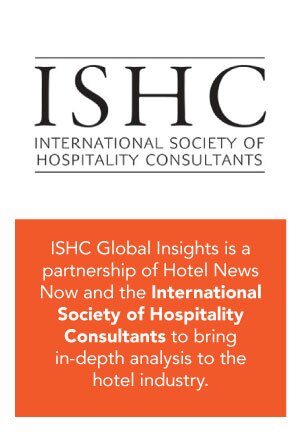Hotel Asset Management Is Ripe for Digitization
Within the hospitality industry, striking a perfect balance in all your departments, while focusing on efficient operations and exceptional guest experiences is key.
Central to this balance is the concept of asset value. What does asset value particularly mean in hospitality? It is a metric used to evaluate the worth and potential of a hotel or property. To gain the most out of your assets, and reach your property’s maximum asset value, leveraging technology is essential.
In today’s digital age, it is necessary to incorporate digital solutions to enable hotel owners and operators to collaborate efficaciously and ensure that their properties reach their maximum potential.

Understanding Asset Value
The monetary value of a property in the hotel industry is known as asset value and it considers its physical characteristics and operational efficiency. This is a crucial factor because it affects investment decisions and eventually the long-term profitability of a given property. Increasing asset value implies that owners need to improve physical condition, brand name, guest satisfaction levels and operational effectiveness among other things that make a property valuable. For owners, a high asset value translates to better returns on investment, while for operators, it ensures a sustainable and profitable business model.
Digital Solutions for Asset Management
Digital solutions have revolutionized asset management by providing tools that streamline operations, improve data accuracy and encourage proactive decision-making. Over the years, many digital solutions have emerged to assist and enhance the asset management process. There have been digital solutions that are tailor-made and specifically focused on the hospitality industry. Although there might still be some apprehension in wanting to use digital solutions from certain members of the hospitality industry, overall acceptance of digital solutions has increased. The reason for this is that these tools allow asset managers to save time on tedious manual tasks, leaving more time to invest on decision-making. Digital solutions offer real-time data analytics, budgeting, forecasting capabilities and standardized and consolidated data management for hotel assets.
These digital tools provide several benefits:
- Real-time monitoring: Allows immediate adjustment and strategic planning of financial performance, occupancy rates and other relevant key performance indicators and metrics by the hotel operators.
- Predictive analytics: Such tools enable proactive management because by analyzing historical data, it becomes easier and more reliable to forecast future trends.
- Efficiency and accuracy: Automation of routine tasks reduces human error and frees up time for strategic activities.
- Comprehensive reporting: Digital solutions offer detailed reports that help in understanding the property’s performance and identifying areas for improvement.
Digital tools can really enhance many processes. As most owners may not have direct access to the IT system, it is essential to have a means of shared information. This allows owners, operators and asset managers to all be on the same page regarding the property. Furthermore, property owners and operators can gain a deeper understanding of their property’s performance allowing them to make better, more-informed decisions and optimize asset value.
Enhancing Owner-Operator Collaboration
Collaboration between property owners and operators is imperative when maximizing the value of an asset. Effective collaboration ensures that both parties are aligned in their goals and strategies, leading to more cohesive and efficient management. The digital tools are instrumental in achieving this through better communication and transparency, thus enhancing collaboration among different stakeholders involved in managing commercial properties.
- Enhanced communication: Platforms with interface communication channels ensure that owners and operators are aligned. This includes the same data sets for dashboards, regular updates, automated alerts for asset managers, etc.
- Transparency: Interface data sharing creates an environment of transparency allowing both parties to have access to the same information. This shared information reduces misunderstandings and builds a sense of mutual trust.
- Collaborative planning: Digital tools facilitate clean data for owners for the decision-making processes, allowing owners and operators to collaboratively develop strategies that maximize asset value.
For example, a hotel owner using a digital platform can easily access financial reports generated by the operator, understand the current financial health of the property and collaboratively develop strategies to improve performance.

Implementation and Future Outlook
Asset value and collaboration have been enhanced by digital solutions through strategic approaches used to maximize the asset value in the hospitality industry, a complex challenge that requires effective cooperation and collaboration between owners and operators through the following processes:
- Assessment: By evaluating current processes and identifying areas where digital tools can provide the most significant benefits.
- Selection: Choosing the right digital tools that align with the property’s specific needs and goals is essential. One should consider factors such as user-friendliness, scalability, and integration capabilities.
- Training: Ensuring that both owners and operators are well-trained in using the selected tools can be a make-or-break point for garnering a positive impact through technology. This includes not only initial training but also ongoing support and updates.
- Integration: Seamlessly integrating the digital tools with existing systems will help in avoiding disruptions and maximizing efficiency.
- Monitoring and Adjustment: Regularly monitoring the performance of the digital tools and making necessary adjustments will ensure that they continue to meet the property’s needs.
In the future, the hospitality industry will move forward with more sophisticated technology; therefore, it is extremely important to stay ahead of the curve. Improved operational efficiency and increased asset value may be achieved by implementing innovative digital solutions. As the industry continues to evolve, staying ahead of technological trends will be the backbone of maintaining a competitive edge and maximizing asset value.
Wolfgang Gattringer serves as a stakeholder and co-owner of Fairmas GmbH, which provides business intelligence and financial planning solutions to nearly 5,500 customers. Wolfgang also leads Solutions dot WG GmbH, focusing on hotel operations and asset management, and has held senior positions at InterContinental Hotels Group.




